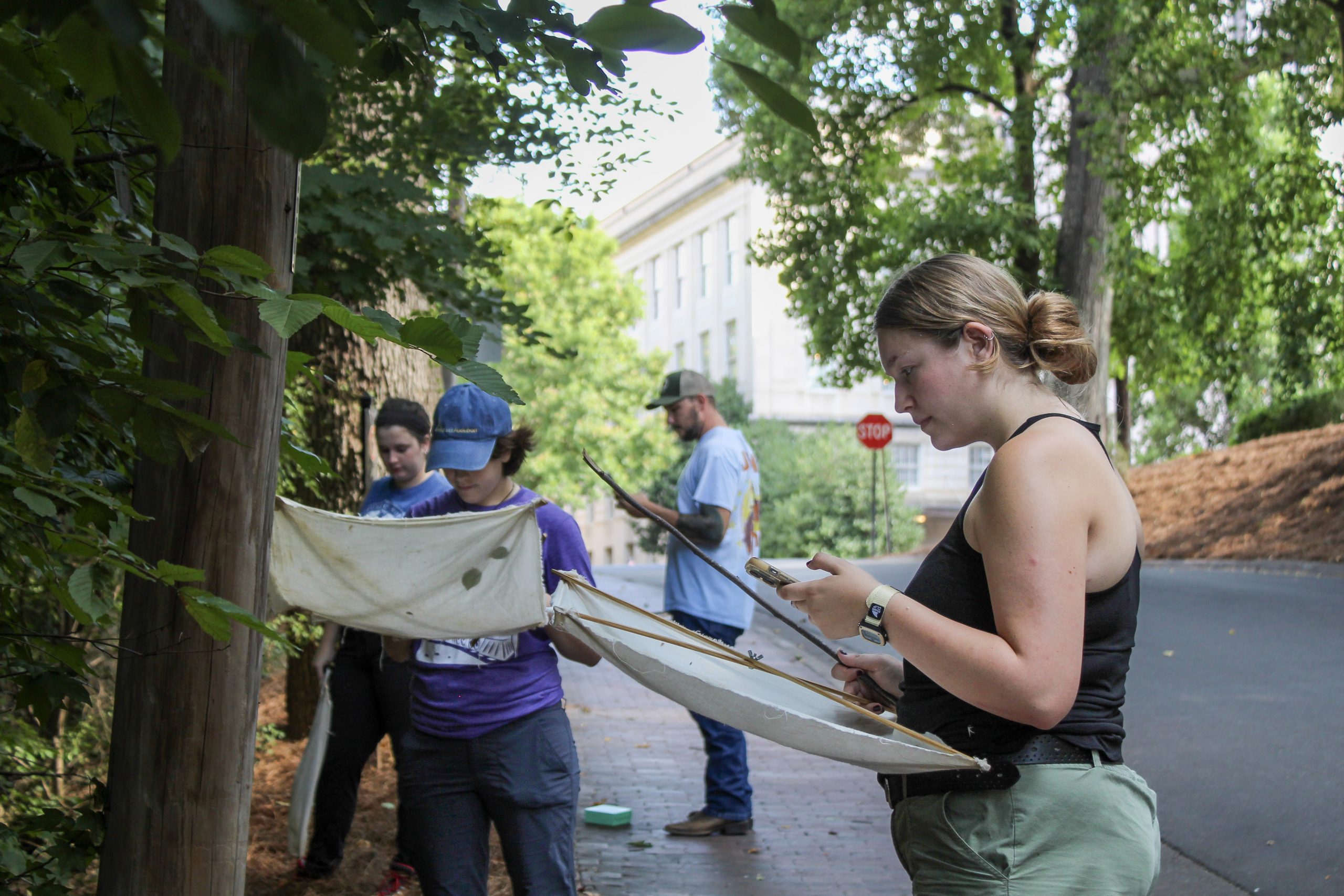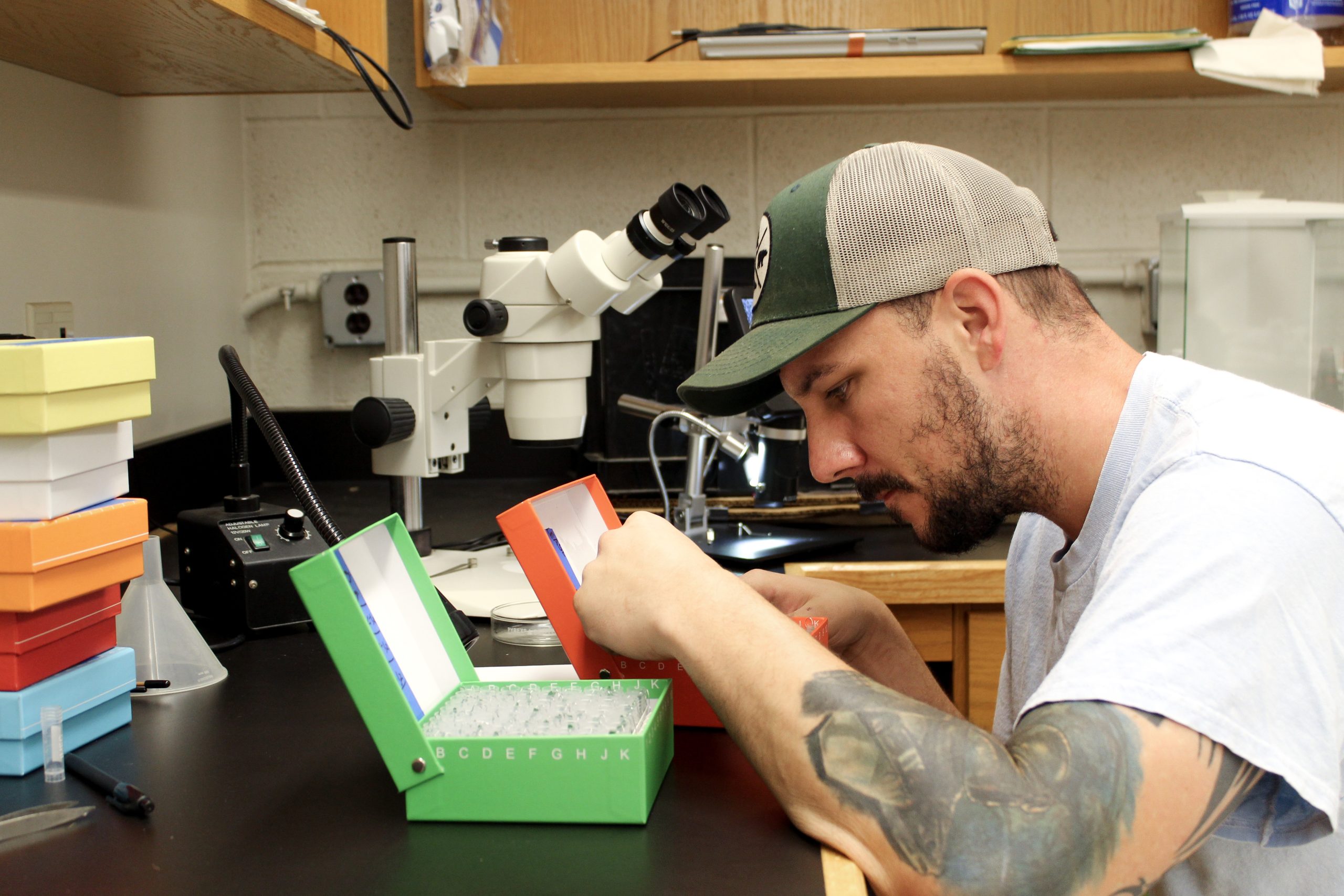Alexander Smith (Allen Hurlbert Lab) used his Summer Undergraduate Research Fellowship to explore how the bugs’ cyclical emergence changed some animals’ feeding habits around the Triangle.
The emergence of millions of cicadas across North Carolina caused a buzz in parts of Chapel Hill and the Triangle this spring as Brood XIX surfaced for the first time in 13 years.
For Alexander Smith, the arrival of the periodical cicadas around Carolina’s campus also presented an opportunity for research.
Smith, a senior biology major, was curious how this year’s addition of millions of bugs would impact the food web dynamics of insects and their predators, including birds, reptiles, arachnids and small mammals.
“When periodical cicadas are introduced into an ecosystem and into a food web, it’s going to alter that food web,” said Smith, who received a Summer Undergraduate Research Fellowship (SURF) grant from the Office for Undergraduate Research to support his work.
A passion for the outdoors
Smith works in the laboratory of biology professor Allen Hurlbert, his SURF advisor. The laboratory experience and community have been central to Smith’s past year at Carolina.
Smith, 28, describes himself as a non-traditional student. After graduating high school, he served in the Army before pursuing the first years of his college career at Cleveland Community College. He transferred to Carolina knowing he wanted to pursue a career related to his love for animals and the outdoors, which he has had since childhood.


